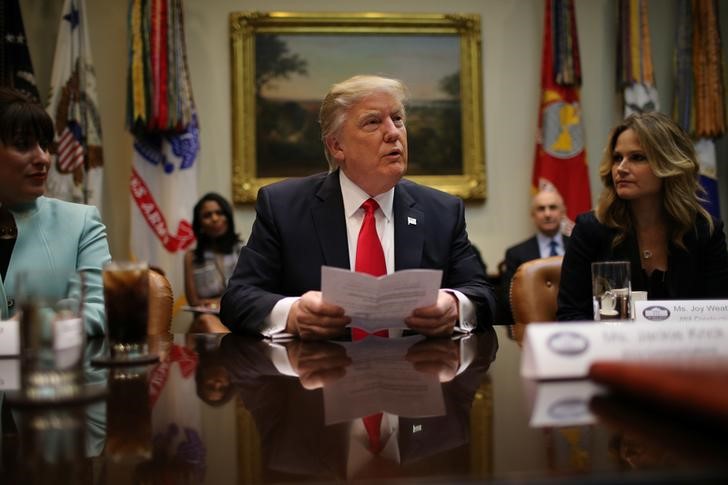By Lesley Wroughton
WASHINGTON (Reuters) - Facing potentially deep budget cuts to U.S. foreign aid, new USAID administrator Mark Green says he needs to do more with less and prove to President Donald Trump that development assistance can further his "America First" agenda.
In a first meeting with Trump back in January, Green made his pitch to the then president-elect, drawing from his experience in Central America to explain how U.S.-funded programs there could help slow the number of immigrants trying to enter the United States illegally.
"I said 'Mr. President-elect, I believe our development tools can help us achieve just about every one of your strategic priorities,'" Green told Reuters in his first interview since starting last week as head of the U.S. Agency for International Development.
Green had previously worked on U.S-supported projects with indigenous mayors in Guatemala, Honduras and El Salvador to improve living conditions "so kids hopefully don't go 1,000 miles through the worst conditions imaginable and jump the border."
"It works and is a great way to use development," he said, sitting in a still bare office at USAID headquarters blocks from the White House.
Green brings a unique resume to the job: a former four-term Republican congressman from Wisconsin who served as U.S. Ambassador to Tanzania under President George W. Bush. In his last job as head of the International Republican Institute, he helped promote governance and democracy overseas.
His time on Capitol Hill will be key to his new job. In a sign of his good standing there, Green's nomination had support across the political spectrum, as well as among aid groups.
Trump staked out his position on foreign aid on the campaign trail, casting it as a waste of U.S. tax dollars. And now his administration has proposed slashing the budget for foreign aid by a third, which could gut programs across a range of issues including health, governance, gender and education.
But U.S. foreign assistance has traditionally garnered bipartisan support in Congress, which controls the aid purse strings. Green has stronger relations with lawmakers than his predecessors, who battled Congress on funding and objectives.
"What's very different for Mark Green is that his strongest allies are on the Hill," said Scott Morris, a senior fellow at the Center for Global Development in Washington. "Where he faces headwinds are with both the White House and the State Department."
"There is a real potential for conflicts in basic philosophy about what USAID does," added Morris.
Green is nevertheless sanguine about prospects for a downsized, budget-constrained USAID.
"We can't do everything," he said. "The resources are limited, so we have to prioritize."
Green takes over an agency that has already been through waves of reform in the last decade, adapting to shifting global development patterns featuring deep-pocket philanthropic groups, more private-sector investment in emerging economies, and the rise of China as a financier in the developing world.
New demands have emerged with an unprecedented refugee crisis from wars in Syria and Iraq, along with famine in Africa, and growing violent extremism.
"USAID's humanitarian work is unrivaled, it is mobilization of American generosity, and it will continue," Green said, adding that U.S. assistance should both help in times of crisis and prevent crises from occurring.
He wants U.S. foreign assistance to focus on results to show Americans that their tax-dollars are being put to good use.
"I am going to ask every program to show me how it is moving us closer to the day when people can lead themselves," said Green. "If it is not helping, they're going to have to tell me why."
